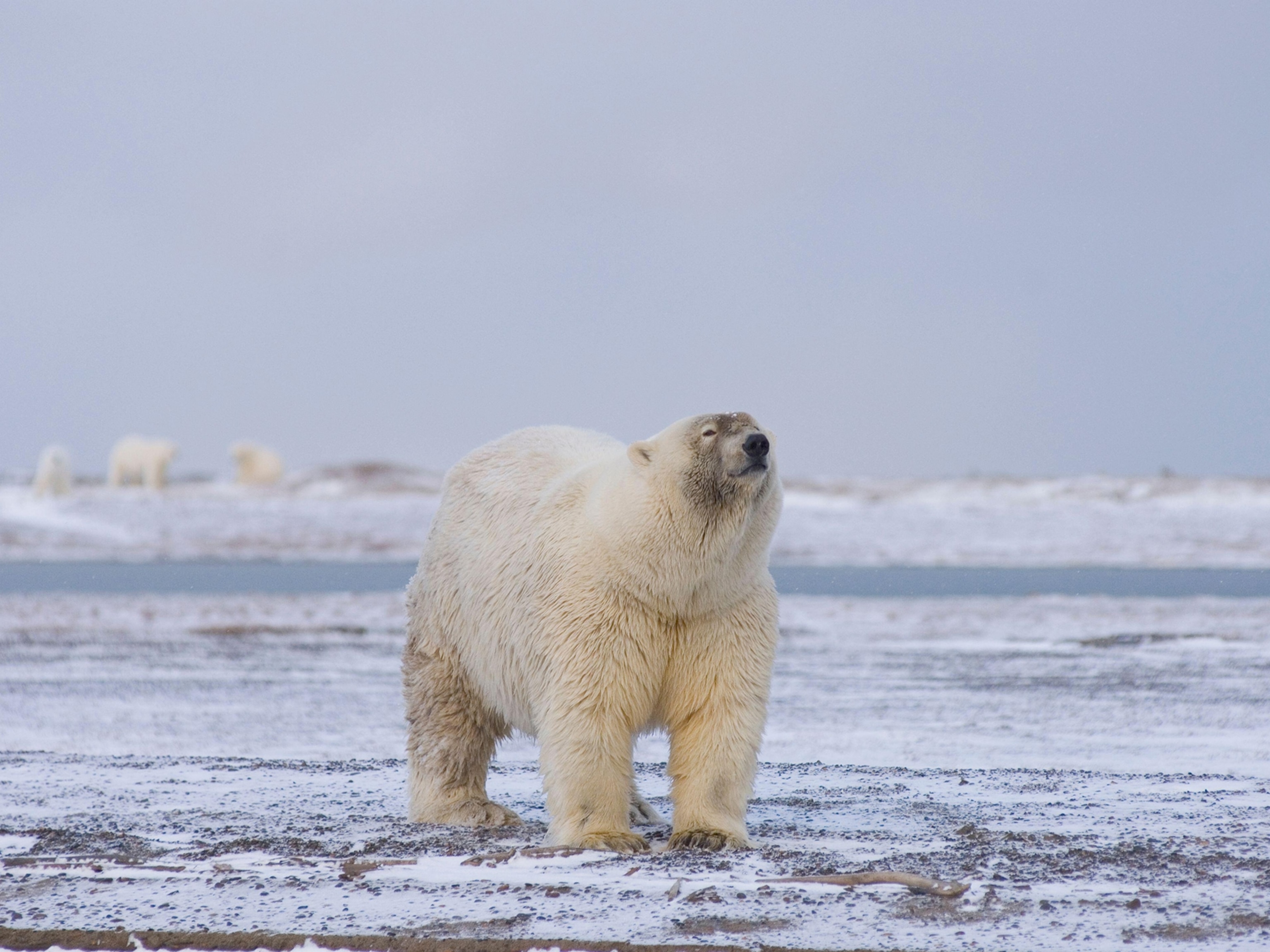Why 150 Whales May Have Beached In Australia
Wildlife officials are still studying why the event happened, but theories range from sickness to fleeing ship sonar.
By Friday morning, more than 150 short-finned pilot whales had been found lying on a beach in western Australia.
Australian news outlets report that some were pulled back out to sea by large cranes. The small whales can weigh between one to six tons. Fears that the carcasses were attracting sharks and a looming storm hindered rescue operations.
Most of the whales could not be saved.
Pictures and videos taken at the beach show a grim scene. Dozens of whales lay packed together in the surf.
Local wildlife authorities are taking physical samples from the dead whales to more closely examine why the stranding happened.
But the stranding, while mysterious for now, is not a rarity, says Nicola Hodgins from Whales and Dolphins Conservation, a marine mammal conservation group.
"This happens unfortunately many, many times," she says. Scientists have previously observed mass strandings off the coast of New Zealand, as well as other countries around the world.
The crux of why it happens en mass, she says, comes down to the fact that pilot whales are extremely social and close knit. They follow a matriarch and tend to form larger pods than other whale species, leading to larger strandings. (Learn about one of the largest strandings ever.)
"If one is sick, then the other whales don't want to leave their side," she notes. As a sick whale loses energy, it falls prey to the pull of waves and can sometimes drift ashore. "The other animals end up beaching as well because they don't want to leave them."
Until a necropsy can be performed, it's only possible to speculate if they followed a sick whale ashore.
Underwater noise is another theory Hodgins notes for why whales have beached in the past.
Sonic booms caused by seismic activity from oil and gas exploration or military sonar can be extremely loud, she notes. Pilot whales, like other whales and dolphins, use sound for critical communication, hunting, and navigation, so underwater noise leaves them especially vulnerable.
"[The sound] disorientates the animals," says Hodgins. "They end up trying to 'run away,' and the energy it takes to do that is potentially debilitating."
Other environmental influences have been found to cause mass strandings. Tsunamis can disrupt the whales' navigation, and toxic algal blooms have been responsible for disease-causing events that lead to mass die-off.
In some cases, a whale seeking prey could be stranded by accident, and other whales follow suite.
Pilot whales are known to have the largest stranding groups.
Last year, more than 600 were stranded in New Zealand, leading to about 400 casualties.
Related Topics
You May Also Like
Go Further
Animals
- How to see Katmai's famous brown bears up close—and stay safeHow to see Katmai's famous brown bears up close—and stay safe
- Spiders may lure male fireflies to their death with a call of loveSpiders may lure male fireflies to their death with a call of love
- 6 animals Nat Geo staff think are very demure, very mindful6 animals Nat Geo staff think are very demure, very mindful
- Why are cell phone contaminants showing up in tiger sharks?Why are cell phone contaminants showing up in tiger sharks?
- This parasite uses an army to suck out the guts of its enemiesThis parasite uses an army to suck out the guts of its enemies
Environment
- How billions of dollars are revolutionizing ocean explorationHow billions of dollars are revolutionizing ocean exploration
- Where to go stargazing in Chile according to a local astronomer
- Paid Content
Where to go stargazing in Chile according to a local astronomer - This coral reef should be dead—so why is it thriving?This coral reef should be dead—so why is it thriving?
- Inside the Native Hawaiian push to rebuild Maui after wildfiresInside the Native Hawaiian push to rebuild Maui after wildfires
History & Culture
- The eighth wonder of the ancient world may have an untouched tombThe eighth wonder of the ancient world may have an untouched tomb
- These countries banned music—but artists still found a wayThese countries banned music—but artists still found a way
- A man’s world? Not according to biology or history.A man’s world? Not according to biology or history.
Science
- How better posture can improve your overall healthHow better posture can improve your overall health
- We're having a COVID summer surge—will winter be worse?We're having a COVID summer surge—will winter be worse?
- Why home births are rising in the U.S.—especially for Black womenWhy home births are rising in the U.S.—especially for Black women
- Why the traditional Okinawan diet is the recipe for a long lifeWhy the traditional Okinawan diet is the recipe for a long life
- How billions of dollars are revolutionizing ocean explorationHow billions of dollars are revolutionizing ocean exploration
Travel
- This French region is home to the country's stretchiest cheeseThis French region is home to the country's stretchiest cheese
- How to see Katmai's famous brown bears up close—and stay safeHow to see Katmai's famous brown bears up close—and stay safe
- The women who cultivate the riches of the Ecuadorian Amazon
- Paid Content
The women who cultivate the riches of the Ecuadorian Amazon - How to plan a slow tour of the Valencia region in SpainHow to plan a slow tour of the Valencia region in Spain




